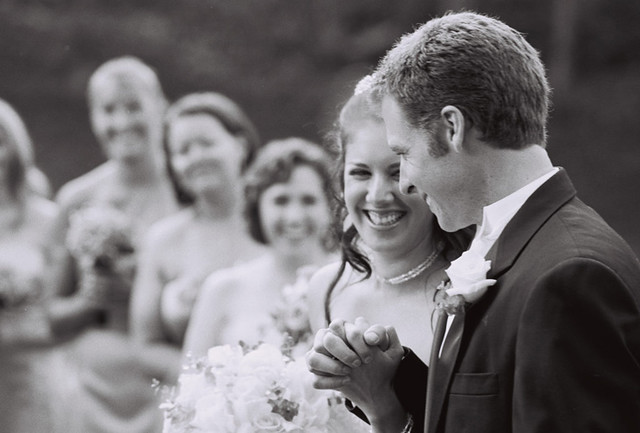One Man, One Woman, and the Common Good: Marriage’s Public Purpose

by Austin R. Nimocks
July 27, 2011
Excerpt:
Marriage doesn’t proscribe conduct or prevent individuals from living how they want to live. It doesn’t prohibit intimate relationships or curtail one’s constitutional rights. Federal legislation that protects marriage as a binding, exclusive, and procreative relationship has the public purposes of marriage—most notably, to continue human existence—at heart. The effort to repeal DOMA, however, tries to replace these essential public purposes of marriage with various private purposes. Our discussion of DOMA and its repeal should not be about the private reasons why individuals marry, why the institution of marriage benefits any particular couple, or why any two people should or should not marry. Instead, we must speak about social policy for our country as a whole and the government’s interest in marriage as an institution.
Due to the public nature of the government’s interest in marriage, a couple’s entrance into marriage has never been conditioned on the couple’s ability and desire to find happiness together, on their level of financial entanglement, or on their actual personal dedication to each other. Because the scope of due process rights is determined not by anyone’s individual circumstances, but by the country’s history, traditions, and legal practices, marriage laws stem from the fact that children are the natural product of sexual relationships between men and women, and that both fathers and mothers are viewed to be necessary and important for children. Thus, throughout history, diverse cultures and faiths have recognized marriage between one man and one woman as the best way to promote healthy families and societies.
Moreover, studies and data from the social sciences have long demonstrated that for children, the ideal family structure is one headed by two opposite-sex biological parents in a low-conflict marriage. Even President Obama supports active and involved fatherhood for all children; he knows all too well the pain of not having a father during his childhood, even though he was raised by a loving mother. As he stated:
We know the statistics—that children who grow up without a father are five times more likely to live in poverty and commit crime; nine times more likely to drop out of schools and twenty times more likely to end up in prison. They are more likely to have behavioral problems, or run away from home, or become teenage parents themselves. And the foundations of our community are weaker because of it.
Likewise, a child psychologist who testified in support of a lawsuit that would judicially impose same-sex marriage on California citizens wrote, “Both mothers and fathers play crucial and qualitatively different roles in the socialization of the child.”
But advocates for redefining marriage are asking you to cast aside the natural attachment of parents to their own children, and the natural desires of children to know who they are and where they came from. These advocates are asking the whole of society to ignore the unique and demonstrable differences between men and women in parenthood: no mothers, no fathers, just generic parents. image by April Killingsworth
Full Essay


0 Comments:
Post a Comment
<< Home